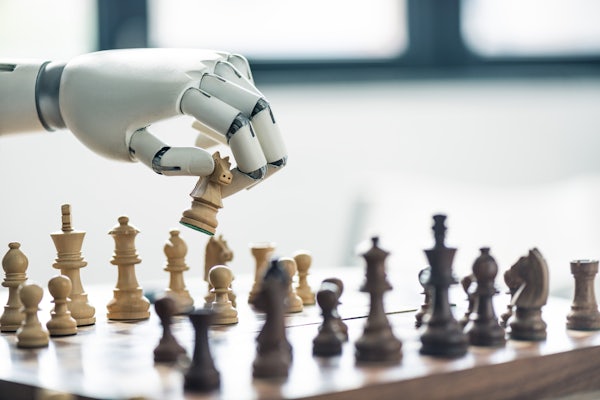Artificial intelligence takes on complex strategic interactions
Yevgeniy Vorobeychik will use artificial intelligence to improve methods for game-theoretic analysis

Game theory is an important tool used to analyze strategic interactions across many disciplines, including economics, political science, operations research and computer science. However, when it comes to increasingly complex decision-making with incomplete information, such as online auctions for critical resources or security issues with many defenders and attackers, there are no generally effective analysis techniques available.
“Whenever you have different actors, whether they’re humans or AI agents, with potentially different goals, the question of what each agent should do is not obvious, because it depends on what everybody else does,” said Yevgeniy Vorobeychik, associate professor of computer science & engineering in the McKelvey School of Engineering at Washington University in St. Louis.
“Finding an equilibrium where every player is generally happy with what they’re doing, given what everyone else is doing, becomes impossible to do by hand with many actors and choices. Instead, we apply computational game theory and design algorithms to find equilibria in situations with lots of complexity.”
Vorobeychik recently won a $400,000 grant from the National Science Foundation to develop equilibrium approximation algorithms that leverage modern artificial intelligence (AI) to expand the kinds of large-scale problems that researchers can tackle. With AI optimization and representation techniques, Vorobeychik seeks to advance mathematical methods of game-theoretic analysis, particularly by automatically discovering and using symmetries and scarcity in multiparty interactions with incomplete information.
“Modern AI allows us to learn the structures of even very complicated domains without actually knowing anything about them,” Vorobeychik said. “We can identify general patterns and represent values much more compactly using deep neural networks. There might be many other things going on, but we basically find the parts that actually matter, and that enables us to scale up to solve enormous games.”
Future applications might range from recommending optimal choices to organizations or designing complex auctions.




